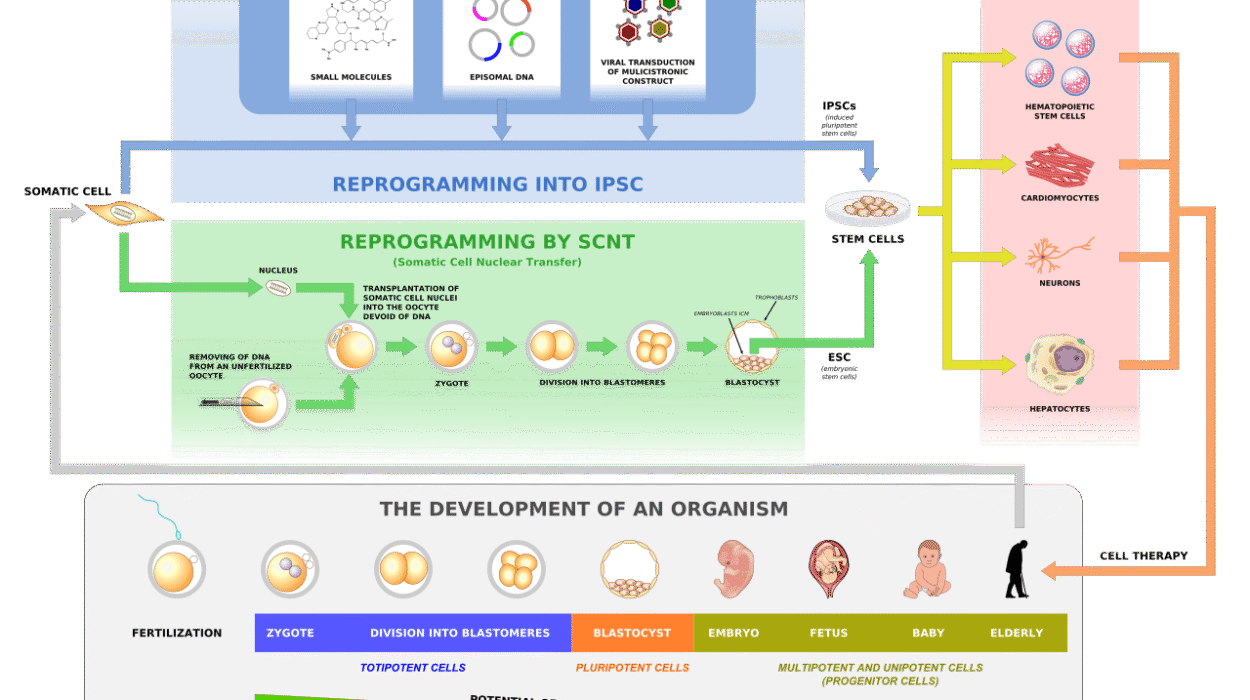Every January, millions vow to “get healthy” or “finally lose weight.” For a few weeks, they might manage to cut carbs, hit the gym daily, or survive on cabbage soup. But by February, most find themselves slipping back into old habits. Sound familiar?
The truth is, weight loss isn’t about finding the fastest diet or pushing your body to its limits. It’s about creating a sustainable lifestyle you can live with—forever. Weight loss done right is not just about a number on a scale; it’s about reclaiming your health, your energy, and your life.
Let’s dive into how you can lose weight safely and sustainably—not just to look better, but to feel better, live longer, and thrive.
Understanding the Science of Weight Loss
At its core, weight loss is a simple equation: calories in versus calories out. But biology, hormones, psychology, and environment complicate this equation. It’s not just willpower—it’s also chemistry.
Your body stores excess energy as fat. When you consume more calories than you burn, the excess gets stored. To lose weight, you need to create a calorie deficit—burn more than you eat. But your body doesn’t like deficits. It thinks you’re starving and may slow your metabolism or increase hunger hormones like ghrelin to protect itself.
That’s why crash dieting backfires. Starve yourself and your body fights back. Instead, you need to gently encourage your body to shed excess weight without panicking it. That’s what sustainable weight loss is all about.
The Psychology Behind Eating
Why do we eat? Hunger is only part of the answer. We eat when we’re stressed, bored, sad, socializing, or just because it’s 6 p.m. Our relationship with food is deeply emotional and culturally influenced.
Learning to identify emotional eating triggers is a critical step in sustainable weight loss. Do you reach for cookies when you’re overwhelmed? Do you binge at night because you skip meals during the day? Understanding your patterns helps you make conscious, rather than reactive, choices.
Mindfulness—paying attention to how and why you eat—can transform your relationship with food. When you pause, breathe, and check in with yourself before eating, you give yourself the power to choose rather than just react.
Setting Realistic, Motivating Goals
Forget “lose 20 pounds in a month.” Set goals that are attainable and meaningful. How about: “I want to feel more energetic,” or “I want to run around with my kids without getting winded,” or “I want to lower my blood pressure”?
Break big goals into small wins: drinking more water, walking daily, cooking at home more often. These goals build momentum and confidence. When goals feel achievable, you’re more likely to stick with them—and celebrate each step.
Success isn’t linear. You’ll plateau. You’ll have off days. But if your goals are grounded in your why, you’ll keep going.
The Role of Nutrition: Eating for Health and Weight Loss
Let’s get this straight: you don’t need to starve yourself or give up your favorite foods. The goal is to nourish your body in a way that supports weight loss and overall well-being.
Focus on whole foods—fruits, vegetables, lean proteins, whole grains, and healthy fats. These foods are nutrient-dense, meaning they give your body vitamins, minerals, and fiber without excessive calories.
Protein helps preserve muscle and keeps you full. Fiber slows digestion and stabilizes blood sugar. Healthy fats from nuts, seeds, and avocados support hormone function and keep cravings at bay.
Rather than cutting out foods, aim to crowd out unhealthy choices by adding more of the good stuff. Love pasta? Mix in spiralized zucchini or serve with a big salad. Craving dessert? Try Greek yogurt with berries and honey.
Balance and variety—not restriction—lead to long-term success.
The Power of Portion Control
You can overeat healthy food, too. That’s where portion control comes in. Learning what a healthy portion looks like can be eye-opening. A “serving” of rice is half a cup—not the overflowing bowl many of us are used to.
Eat slowly, chew thoroughly, and stop when you’re satisfied—not stuffed. It takes about 20 minutes for your brain to register fullness. Give it time.
Use smaller plates, avoid eating from packages, and portion out snacks in advance. These simple habits help prevent mindless overeating.
Hydration: The Overlooked Weight Loss Tool
Thirst often masquerades as hunger. Before reaching for a snack, drink a glass of water and wait 10 minutes. You might find you weren’t hungry after all.
Water also supports metabolism, digestion, and energy. Aim for at least 8 cups (2 liters) a day—more if you’re active or live in a hot climate.
Try herbal teas, flavored water with lemon or cucumber, or even sparkling water if you crave fizz. Just skip the sugary drinks—they’re empty calories in disguise.
Move Your Body (In Ways You Actually Enjoy)
Exercise doesn’t have to mean running marathons or punishing workouts. The best exercise is the one you’ll actually do—and keep doing.
Walking, dancing, swimming, hiking, biking, yoga—anything that gets you moving counts. Aim for at least 150 minutes of moderate activity per week.
Strength training is also vital. Muscle burns more calories than fat, even at rest. You don’t need a gym—bodyweight exercises like squats, push-ups, and planks work just fine.
Start small. Even five minutes a day is better than nothing. Build gradually. Consistency matters more than intensity.
Sleep: The Secret Weapon for Weight Loss
Poor sleep messes with your metabolism. It increases hunger hormones, decreases satiety hormones, and leads to more cravings—especially for carbs and sugar.
Aim for 7–9 hours of quality sleep. Create a calming bedtime routine. Keep screens out of the bedroom. Avoid caffeine late in the day. Your body heals, restores, and resets during sleep—don’t cheat yourself of it.
If you’re chronically tired, weight loss will be an uphill battle. Rest is as important as diet and exercise.
Stress and Weight: Breaking the Cortisol Cycle
When you’re stressed, your body releases cortisol—a hormone that encourages fat storage, especially around the belly. Chronic stress also drives emotional eating and poor food choices.
Managing stress is crucial for weight loss. Try meditation, deep breathing, journaling, nature walks, or hobbies you love. Talk to a friend or therapist if you need to.
Learning to calm your nervous system helps you make better choices and reduces cortisol-driven fat storage.
Social Support: Why You Shouldn’t Go It Alone
Weight loss is hard to do in isolation. Find support—whether from friends, family, an online community, or a health coach. Share your goals. Celebrate your progress. Vent when it’s tough.
Social accountability increases success. You’re more likely to show up for that walk if someone’s waiting for you.
But choose your circle wisely. Avoid “diet culture” spaces that shame or judge. Find people who uplift and empower you to be your healthiest self.
Tracking Progress (Beyond the Scale)
The scale is one tool—but not the only one. Weight fluctuates for many reasons: water retention, hormones, muscle gain. Don’t let the number mess with your head.
Track how your clothes fit, your energy levels, your sleep, your mood, and your habits. Celebrate non-scale victories like running farther, lifting heavier, or choosing a salad over fries without feeling deprived.
Keep a journal. Take progress photos. Focus on the process, not perfection.
When to Seek Professional Help
Sometimes, despite your best efforts, progress stalls—or emotional eating takes over. That’s when professional help can make all the difference.
A registered dietitian can help tailor a plan to your needs. A therapist can help with emotional eating, trauma, or body image issues. A doctor can rule out underlying conditions like thyroid problems or PCOS.
Getting help isn’t failure—it’s smart. The right support can change everything.
Redefining Success: It’s Not Just About Pounds Lost
What if the real victory isn’t fitting into skinny jeans, but feeling strong, confident, and alive in your body?
Sustainable weight loss is about building a life you love—not punishing yourself into a smaller shape. It’s about healing your relationship with food, trusting your body, and choosing health every day.
When weight loss is driven by self-care, not self-loathing, it becomes a joyful journey—not a miserable chore.
Your Daily Formula for Safe, Sustainable Weight Loss
Each day is a new opportunity. Here’s how to build daily habits that support long-term success:
Wake up with purpose. Drink water. Move your body. Eat whole, colorful foods. Breathe deeply. Sleep well. Laugh often. Forgive slip-ups. Keep going.
Weight loss isn’t a sprint—it’s a marathon of tiny choices made every day. You don’t have to be perfect. You just have to be consistent.
You are not broken. You are not lazy. You are human—and capable of incredible transformation when you choose health from a place of love.
The Bottom Line
Losing weight safely and sustainably isn’t about extreme diets, intense workouts, or hating your body into change. It’s about listening, learning, and loving yourself into better health.
It takes time. It takes patience. It takes grace.
But it’s worth it. Because at the end of the day, this journey isn’t just about losing weight—it’s about gaining life.






